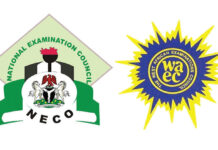The Nigerian government recently launched a student loan program aimed at making higher education more accessible to all. The program, which started giving out interest-free loans to students in need, has already disbursed N2.5 billion to over 22,000 students in six federal universities. However, despite its good intentions, the scheme has sparked debate about its effectiveness and fairness.

One major issue with the program is the significant increase in university fees that came with the new law. Some schools raised their fees by over 350%, making it harder for many students to afford college. This defeats the purpose of the loan program, which was meant to help students who can’t afford college fees.
Another challenge is the limited reach of the loan. Initially, it was only available to students in government-run schools, excluding those in private universities and some state schools. This means that many students who need help are left out.
Furthermore, the loan program can’t cover fees for even 20% of Nigerian students. This means that many students who need help won’t get it. The program’s limited funding and reach have raised concerns about its ability to make a meaningful impact.
Experts warn that high fees are forcing students out of school. Professor Emmanuel Osodeke, head of the Academic Staff Universities Union, notes that the high fees are making it difficult for students to access higher education. Afe Babalola, who runs a private university, points out that private school students also struggle with costs but can’t get the loan.
Similar programs in other African countries, like Ghana and South Africa, have struggled. There are concerns about how well Nigeria can manage and fund the program long-term. If the program fails, it could leave many students in a worse position.
To truly make higher education accessible to all Nigerians, changes might be needed. These could include rethinking the fee increases that came with the new law, expanding the loan to more types of schools and students, and planning for long-term funding and management of the program.
While the Nigerian government’s intention to help students is good, the current setup of the loan program might not be solving the problem it set out to fix. Instead, it might be creating new challenges for many students trying to get a higher education.




